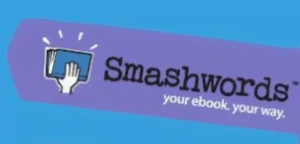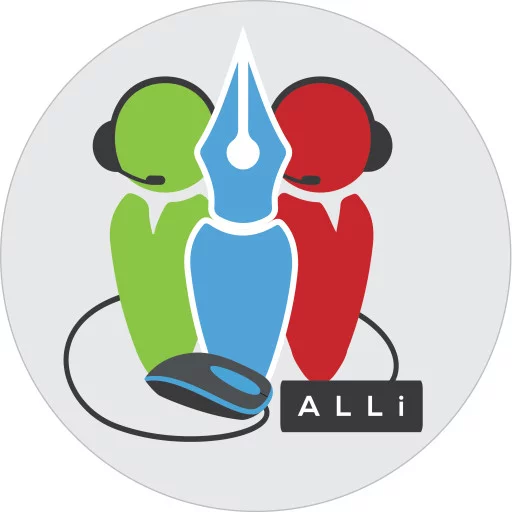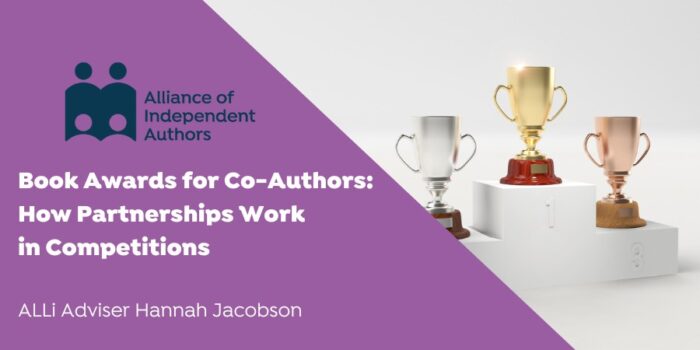Indie Authors are in the midst of rapid and dizzying change, and in our latest podcast, Mark Coker, shares his insights about what's driving the future of publishing, and your role as an indie author to help shape that future.
Mark kicks off our Indie Author Fringe podcast by revealing his epiphany moment that helped launch Smashwords in 2008, and then talks us through the 10 trends driving the future of publishing.

Mark's company was at the forefront of of the indie revolution, and for those of you not familiar with them, Smashwords is an eBook publishing platform that makes it fast, free and easy to publish and distribute your books.
At the time of recording, Smashwords features 400,000 books from 115,000 authors and small independent presses.
10 Trends Driving the Future of Publishing Podcast
Podcast Summary
Mark's discusses 10 key elements that are driving the future of publishing, and and how indie authors need to be the driving force to maximise their publishing potential.
Trend 1: THE RISE OF EBOOKS
- In the last 8-10 years we've seen an exponential increase in the market for ebooks. Back when Smashwords first started, less than 1% of the overall book market was ebooks, but with the growth in the market, Mark estimates it's probably around 25% now.
- Most of the time of people talk about market share in terms of percentage of dollars spent on books, but when you look at the unit market share, the number of books being read, and the number of words being consumed, he contends that the ebook market share is actually much higher. Probably closer to 50%.
- This has really important implications for indie authors. It means that digital really needs to be at the forefront of your publishing strategy. If you're already implementing this strategy, great. But if not, it's time to release your books digitally.
Trend 2: The Democratisation of Publishing
- Back in the dark ages of publishing (about 10 years ago), traditional publishers controlled the means of book production, and the access to retail stores. If you couldn't get your book into bookstores you couldn't reach readers. Publishers rejected authors they deemed uncommercial, and although authors could print their own books, it was very difficult to sell them without the access to a distribution network.
- With the rise of e-books everything changed. Suddenly the major retailers were open to indie authors, and for the first time ever, bookstores could stock every single digital book that was available to them. This was really transformative, and traditional publishers started losing their monopoly and their strangle-hold on the market.
Trend 3: Ebooks are Going Global
- Initially, English language writers published a book with a view to releasing it in English-language markets like the US and UK, and maybe some smaller markets. But today, indie authors have the ability to publish a book directly to readers around the world.
Going Global is one of our ALLi Campaigns – check out this ALLi Insights events about Going Global in India.
Trend 4: The Rise of Indie Authorship
- Authors are taking control of their careers. Each indie author has the ability to plot their publishing path. They can choose self-publishing, traditional publishing or a hybrid model.
- Check out the Smashwords Indie Author Menifestio mentioned in this Podcast
- When you talk with indie authors about what what really drives them to self-publish and what they enjoy about self-publishing, the cite the following benefits:
- Indie Authors don't have to deal with gatekeepers
- Indie Authors enjoy a quicker time-to-market
- Indie Authors have total creative control
- Indie Authors have lower expenses, so can sell their books for lower costs
- Indie Authors have better access to a global markets
- Indie Authors can enjoy significantly higher royalties (listen to the Podcast for Mark's comparison between indie and traditional publishing percentages, and the pricing sweet-spot for self-published authors). Anytime you lower the price of your product, it more desirable and more accessible to more readers. This is how authors in India are building their readership so quickly.
Trend 5: Indie Authors are hitting all the Best Seller Lists
- Almost every single week indie authors are hitting the New York Times or USA Today bestseller list. Mark estimates that there will be a point in time where most best-selling ebooks are self-published, because of the competitive advantages indie authors have.

NY Times Best Selling List
Trend 6: Previous stigma of being self-published is disappearing
- When Mark started Smashwords, self-publishing was viewed as the last resort option. Most writers aspired to get a traditional publishing deal, and if they didn't, considered themselves a creative failure.
- Amanda Hocking was the first author to sell a million ebooks. Her success inspired other writers to to recognize that yes, they too, could self-publish with pride.
- Mark regales the tale of the internationally-known bestseller, Jamie McGuire. She was one of those early authors who started at Smashwords, then sold out to the large publishers, but eventually returned to her self-publishing roots, and this is a trend Mark has seen across many other authors.

NY Times Best Selling List
Trend 7: A glut of high-quality low-cost books means it's becoming more and more difficult to reach readers
- The rise of e-books has really fueled this glut of reading material. Back when print owned the world, books would typically go out of print after a few months if they weren't selling well. This artificially constrained the supply of books that readers had to choose from. Today ebooks are immortal. They never go out of print, and this means that like a cobweb made of stainless steel your books are going to line the virtual bookshelves of the major retailers forever.
- Mark asserts that that supply of books is is potentially growing faster than the supply of readers, and anytime supply outstrips demand, suppliers have to compete on price. This, creates some interesting implications for authors … see Trend 8
Trend 8: Amazon is exploiting this product glut
- By driving massive devaluations with Kindle Unlimited, Amazon is turning the tables on authors. Their business model is dependent on offering lowest price, best selection, greatest convenience and with KDP Select, Amazon have created an exclusive programme that carves out a subset of books to give preferential availability, marketing and promotional treatment too.
- Listen to Mark explain how Amazon controls the cost of goods for their pay by page approach, which allows them to sell your book to a reader at a lower cost than any other retailer.

Trend 9: Kindle Unlimited is undermining the market in single copy sales
- When you go to Amazon, look at the product page for a KDP Unlimited enrolled book. Amazon's merchandising on that page actively encourages the reader to read for free in two spots on that page. In effect they are making even a 99c ebooks look too expensive.
- Mark attests that via KDP Select, Amazon is training the world's largest collection of readers to expect to read books for free.
Trend 10: Indie Authors will write the next chapter in this industry's evolution
- The power centre in publishing is shifting from publishers to writers. So as an indie authors you decide where, when, and how you're going to publish. It's the collective decisions of writers that will determine the course of the publishing industry, and really shape the industry for the next generation.
- It's a pivotal moment in publishing, and as an indie author you have the tools and the knowledge to publish with pride and professionalism. You also have the freedom to self-publish as an indie author, or go the traditional route. It's your choice. Mark is supportive of all the options available to writers, and only time will tell whether Amazon will strip indies of their independence.
- Are Amazon trying to control the supply of books? Mark believes so, but at the end of the day, Indies control the supply if they decide to to wield their collective power.
So imagine twenty years from now. Imagine the publishing future that you want and then make the decisions today that enable the future to come to fruition. Do your best to support a thriving and dynamic ecosystem of multiple competing retailers, by supporting all of the retailers that distribute your books. As an Indie author, fight for your right to be the captain of your own destiny.
Do you know the 10 Trends Driving the Future of Publishing? #Podcast with @markcoker #selfpub Share on XSome Related Posts
https://selfpublishingadvice.org/opinion-every-author-should-self-publish-at-least-once/





This was a really valuable interview and a really great summary of where eBooks started and where they seem to be heading. Couldn’t agree more with point #10. The question is, how can authors leverage their content to meet the global demand for their books without the limitations of the current marketplaces? I think the trick is to get outside the proprietary ecosystems (which control both marketplaces, file types, and reading devices).
How do you do that, though? My solution is to encourage authors to create universal books (uBooks). They are web-based books that can be read on any device that has a browser, including a Kindle. Here’s the project page where you can get more info: https://github.com/brianhaferkamp/ubook-project.
I’d love to start a movement of new marketplaces and greater creativity within the digital book space by producing uBooks. As a bonus, this cuts out the middle man for authors and publishers and allows them to set up a real platform where you can keep the profits from your own creativity.
I’d love to hear thoughts on this. It’s really in the initial stages but ready for prime time so I’m putting it out there now.
[…] Podcast: 10 Trends Driving the Future of Publishing with Mark Coker (Self Publishing Advice) […]
[…] Podcast: 10 Trends Driving the Future of Publishing with Mark Coker (Self Publishing Advice) […]
Thank you for the great transcript, Jay!
It was a great opportunity to listen to your 10 trends summary again Mark.
Thank you, Orna and Nark,for your earlier videos, and today’s Trends regarding the birth and future of Self Publishing. Frugal Marketer Publishing, LLC. is my small-press. I sold my 1st Small Business book, a hard-cover paper book, out of the boxes that filled the trunk of my car in a 90 day tour around the USA. Scheduled signings and talks in B&N and local book-stores, radio and TV shows in the string of markets from Miami, FL to S.F. in CA and back. An invaluable learning curve: writing, editing, publishing. I attended conventions and networked. Indie Authors are in the best position today, with your, and Mark’s hard work on our behalf.
Hi MARK: Sorry for the typo… Had to be your name… the Writing Gods have their sense of humour. It slipped by me.
Stay well…
Warren.